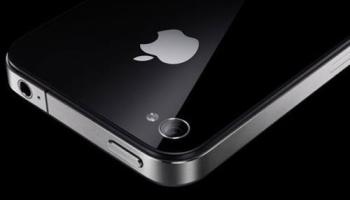The next iteration of Apple’s iconic iPhone handset, expected sometime in September, will reportedly ship with a faster A5 processor onboard.
This is according to a Bloomberg report citing unnamed “people familiar with the plans.”
Other features will apparently include an 8-megapixel camera and the company’s recently introduced iOS 5 mobile operating system.
Cheaper Cousin
In addition, the 21 June article claims, Apple is developing a smaller, cheaper iPhone that utilises “chips and displays of similar quality to today’s iPhone 4.” That device will apparently embrace the iPhone 4’s design aesthetic.
 Rumours of Apple working on a cheaper iPhone have circulated for months. In theory, such a move would help blunt the impact of rival manufacturers flooding the market with less expensive smartphones running Google Android, although it also risks diluting Apple’s brand as a purveyor of higher-end tech – unless Cupertino can successfully walk that fine line between cost and quality.
Rumours of Apple working on a cheaper iPhone have circulated for months. In theory, such a move would help blunt the impact of rival manufacturers flooding the market with less expensive smartphones running Google Android, although it also risks diluting Apple’s brand as a purveyor of higher-end tech – unless Cupertino can successfully walk that fine line between cost and quality.
With the rumour mill churning merrily away over everything even passingly related to Apple’s next iPhone (generally referred to as the iPhone 5), certain details find themselves repeated by Apple-centric blogs and media sources: that the device will feature the A5 processor, that it will boast more powerful cameras, that Apple has decided to retool the design language, that the screen will be wider, that it will debut sometime in the fall.
Some blogs have broken away from the main pack of rumours. “According to our source, Apple may hold an event in the beginning or middle of August to announce the new iPhone, with availability to follow in the last week of August,” read a 21 June posting on the blog Boy Genius Report, which also predicted that Apple will employ a “radical new case design” for the smartphone.
Android Pressure
That August date would represent a decided change of pace for Apple, which usually hosts a mobility-centric event in September, usually centered on the newest refresh of the iPod line. It would be easy enough to adjust that event to accommodate the iPhone, which has been cannibalising the iPod’s market share over the past several quarters.
For all their intensive digging into Apple’s affairs, Apple-centric blogs’ predictions end up being wrong a significant percentage of the time. Nonetheless, they serve as something of an early-warning system for releases from ultra-secretive Apple.
During a 6 June presentation at Apple’s Worldwide Developers Conference, company executives claimed that more than 200 million iOS devices had been sold, in the process occupying some 44 percent of the operating system market.
The veracity of that market share percentage aside, Apple is certainly feeling pressure to keep iOS evolving in order to keep ahead of the growing family of increasingly sophisticated Android devices; in addition, Apple faces additional competition from the likes of Research In Motion’s BlackBerry franchise and Microsoft’s Windows Phone.





